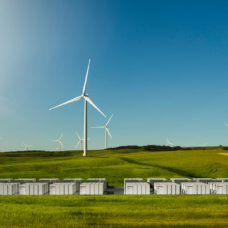Hydrogen (H2) is the simplest, lightest, and most abundant element in the Universe.
At some point, hydrogen was one of the main gases in the dusty, gassy nebula around the Sun from which Earth and other planets formed.
However, Earth’s atmosphere now contains only trace amounts of hydrogen. So we can’t just capture hydrogen from the air to use it.
Hydrogen has long had a variety of industrial uses. In space, NASA uses liquid hydrogen to propel shuttles and rockets.
Reliable, easily-produced, and clean, hydrogen is a high-potential sustainable fuel that could play a major role in the global energy transition.
However, there’s a somber background to hydrogen’s clean canvas.
Today, most of the hydrogen produced worldwide comes from fossil fuels. In the U.S., 95 percent of hydrogen comes from natural gas through a high-emitting process called steam-methane reforming.
However, hydrogen can also come from renewable energies instead of fossil fuels, albeit to a higher cost.
Industrial-Scale Renewable Hydrogen Power is Around the Corner
Hydrogen produced through a Power-to-Gas (P2G) process can back up the power supply of intermittent energy sources.
Power-to-gas facilities can store the surplus power from solar and wind installations by converting electricity to hydrogen. In this electrolytic process, electricity splits water molecules into hydrogen and oxygen.
Cars, drones, trains, and even ships can run carbon-free hydrogen without leaving a nasty trail of greenhouse gases in their wake.
Hydrogen power obtained from renewables is promising in many ways. But it does face some limitations, particularly the cost of the production process.
However, falling costs for renewable energy means sustainable hydrogen will gain in competitiveness.
According to researchers from the Technical University of Munich (TUM), renewable hydrogen is cheaper than we thought.
“The recent precipitous decline in the cost of renewable power now suggests that the economic fundamentals of PtG facilities are about to change,” say the researchers.
The team examined renewable hydrogen from the perspective of an investor with the financial capacity for a hybrid system of renewable power and an appropriately sized P2G facility.
They then applied their model to wind energy in Germany and Texas and found that renewable hydrogen, at €3.23 per kg, is “already cost competitive” in niche applications.
If this trend continues, renewable hydrogen could become economically viable for within a decade.
Renewable hydrogen is perhaps the biggest puzzle remaining for energy transition to finally help the world achieve true carbon targets.
Co-author of the paper, Gunther Glenk, thinks policymakers “should not ignore hydrogen” in the discussion on energy transition and renewables.
“It’s already competitive today if you do the calculations right,” Glenk said, “and it will be even more so even before 2030.”



















Comments (0)
Least Recent